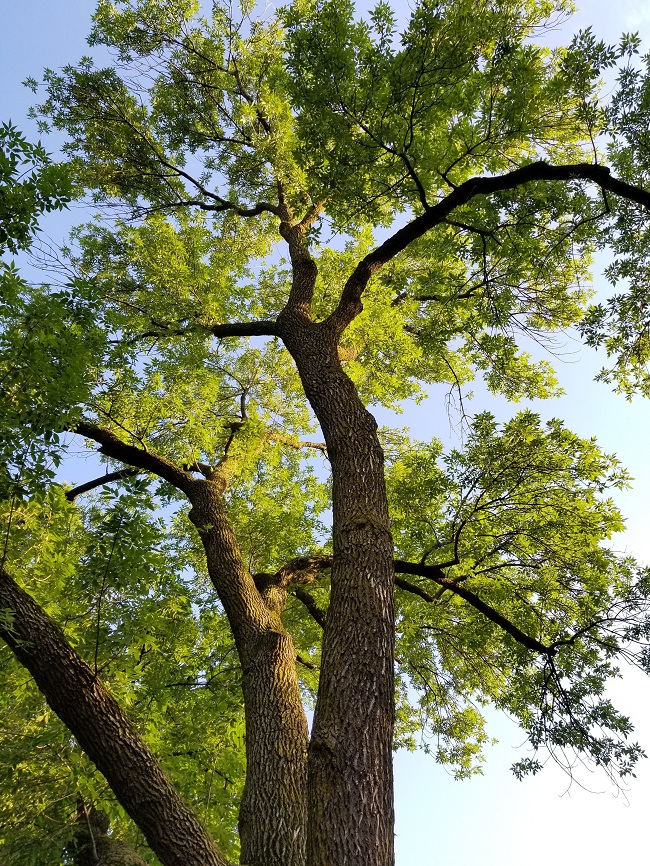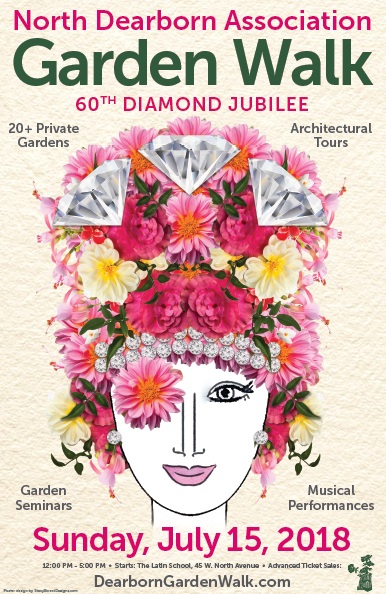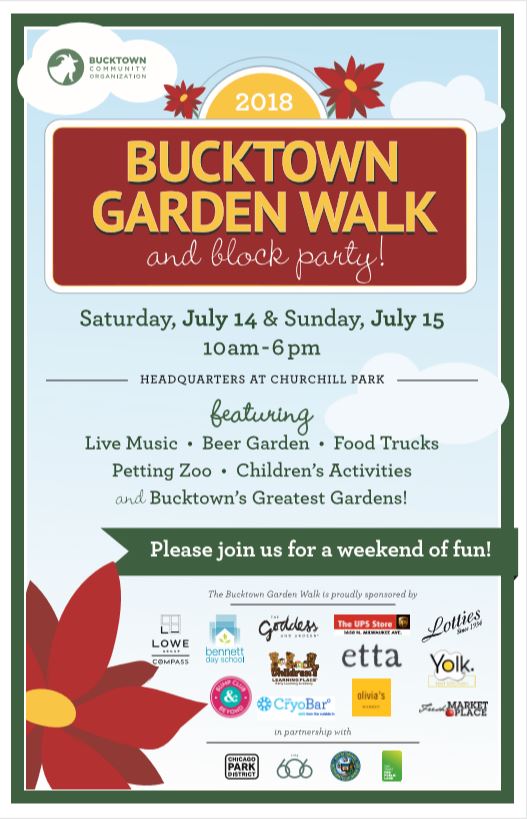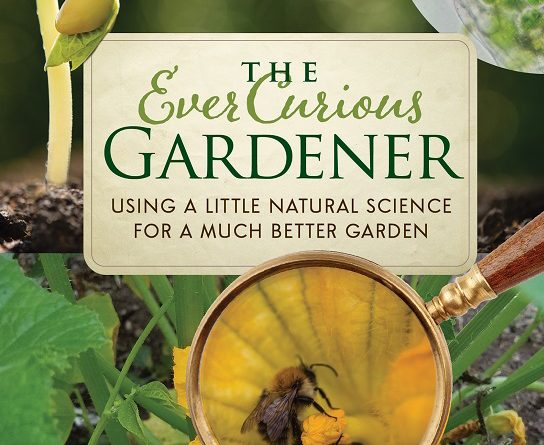A Little Science in the Garden Goes a Long Way
The ever curious Lee Reich returns.
![]() (July 1, 2018) There are a few books that change the way you view the world–or, in this case, the world of gardening. The one that had that impact on me was Weedless Gardening by a guy named Lee Reich. I interviewed him when I was at Gargantua Radio down the dial almost twenty years ago. But I haven’t forgotten the lesson he taught me–namely that digging is overrated.
(July 1, 2018) There are a few books that change the way you view the world–or, in this case, the world of gardening. The one that had that impact on me was Weedless Gardening by a guy named Lee Reich. I interviewed him when I was at Gargantua Radio down the dial almost twenty years ago. But I haven’t forgotten the lesson he taught me–namely that digging is overrated.
Buried in every soil are countless dormant weed seeds just waiting to be awakened by exposure to light and/or air. Not tilling — whether with a shovel, garden fork or rototiller — keeps those seeds buried and dormant.
Added bonuses to the no-till approach are preservation of valuable soil humus (organic matter), earlier planting in spring, more efficient water use and, of course, not having to go through the trouble of tilling.
I hope that those of you who view rototilling as a religion, or at least a cult, are paying attention. So who is this Lee Reich guy, who espouses such heresy?
Lee Reich PhD, dove into gardening decades ago, initially with one foot in academia as an agricultural scientist with the USDA and then Cornell University, and one foot in the field, the organic field. He eventually expanded his field to a “farmden” (more than a garden, less than a farm) and left academia to lecture, consult, and write. He is author of many books including Weedless Gardening, The Pruning Book, and Landscaping with Fruit, as well as a syndicated column for Associated Press. In addition to providing a year-round supply of fruits and vegetables, the farmden has an educational mission and is a test site for innovative growing techniques.
And now he’s written a new book called The Ever Curious Gardener: Using a Little Natural Science for a Much Better Garden. If you’re a regular listener to The Mike Nowak Show with Peggy Malecki, you will realize that his book is much in the vein of the kind of work being done by Dr. Linda Chalker Scott, who wrote How Plants Work.
Reich’s book is not so much a “how to” as it is a “you might find this interesting” type of work. As he writes in is introduction,
It’s not a comprehensive overview of botany and related sciences, just some natural science that can be applied in the garden. No need to read from cover to cover or in one fell swoop to get the most of this book. Each chapter can stand by itself–as, in most cases, can each section within a chapter. So dip in and out of this book according to your whim, the season, or what’s happening in your garden.
And that’s exactly right. With that in mind, pick a subject: Propagation and Planting or Soil or Flowering and Fruiting (he does like to talk about his fruit trees), or Stems and Leaves or Stress (not from the office, but the kind of stress that affects plants) and dig in, so to speak.
I’m looking forward to talking to him again after all these years.
It hasn’t been an easy year for trees…
…but then, it never is. Which is why we’re pleased to have Andrew Keppel and Mike Provost from SavATree Tree, Shrub & Lawn Care on the show this morning. Andrew is Andrew Keppel is the Chicago District Manager out of the Northbrook Office, and Mike is an ISA Board Certified Master Arborist who provides comprehensive tree, shrub, lawn, tick and deer services to Glencoe, Glenview, Northbrook, Winnetka, and the surrounding areas.
 They inform us that there are a number of issues that they have encountered this year, including
They inform us that there are a number of issues that they have encountered this year, including
- Viburnum Leaf Beetle (which we discussed on the June 17 show)
- Boxwood Leaf miner
- The Cool moist spring (now turning into a hot, moist summer), driving a lot of disease activity: rust, scab, anthracnose, tar spot, Volutella
- The drought of last summer (anybody remember that?) combined with lack of moisture over the winter causing evergreen stress (super dry and now very wet causing root damage)
- Excessive growth brought on by so much rain: can create nutrient deficiencies caused by over consumption
And, of course, we’ll take your questions at 877-711-5611 or on Facebook, Twitter or carrier pigeon.
One of the services handled by Mike that interests us is their tick control program. They report that they can apply a treatment
to the ecotone areas (zone between lawn areas and wooded areas – this is the preferred habitat of the deer tick) and, if necessary, to the lawn area as well that will provide an immediate reduction in the number of ticks on your landscape.
More than 300,000 cases of Lyme disease are reported to CDC every year, making it the most commonly reported tick-borne illness in the United States, the CDC says. But some reports have suggested it is far more common than that.
According to published research, approximately 90% of deer ticks on a property will be found in the ecotone areas with less than 2% found in lawn areas.
You can contact SavATree at 847-729-1963, go to the SavATree Facebook page, or check out the SavATree Referral Program, if you know somebody who could benefit from their services.
Garden Walk Season, Part One
Given that two of the last three weekends in Chicago have experiences temperatures in the 90s…and we’re barely out of June, I’m not exactly sure why garden walks seem to always be scheduled for July. My garden looks its best around the end of May, frankly, and it’s all downhill from there. But perhaps that’s just me.
That said, however, the City of Chicago is rich with gardening events, including the two we feature today.

The North Dearborn Association (NDA) is about to present its 60th annual Dearborn Garden Walk/Diamond Jubilee. This is a garden walk that not only have I attended, but I actually judged one year. I’m sure they learned their lesson after that. It happens on Sunday, July 15th from 12 pm-5 pm . Tickets are $30 (advance) / $35 (gate) and include a Dearborn Garden Walk program with a map for a self-guided tour of the gardens, live music in select gardens with professional musicians from around Chicago, gardening seminars and guided architectural walking tours of historic Dearborn Parkway.
Not only is it the oldest garden walk in Chicago, it is one of senior walks in the entire country. Joining Peggy and me this morning to talk about the event are Nina Ganz, Dearborn Garden Walk co-chair, and Mimi Winters.
 The other garden walk happens over two days on that same weekend. The Bucktown Garden Walk has seen a resurgence in the past couple of years. The event headquarters were moved to a public, outdoor space, and the event formed a partnership with the park district and the city. Part of that includes a Children’s Fest with family friendly businesses that feature hands-on activities, many of which are nature based and designed to teach kids about gardening and sustainability. The event also features a block party with entertainment, food and drinks, and a a trolley to help walkers get around the neighborhood while on their self guided tour.
The other garden walk happens over two days on that same weekend. The Bucktown Garden Walk has seen a resurgence in the past couple of years. The event headquarters were moved to a public, outdoor space, and the event formed a partnership with the park district and the city. Part of that includes a Children’s Fest with family friendly businesses that feature hands-on activities, many of which are nature based and designed to teach kids about gardening and sustainability. The event also features a block party with entertainment, food and drinks, and a a trolley to help walkers get around the neighborhood while on their self guided tour.
We’re pleased to welcome co-chairs Olivia Belmonti and Meredith Flagstad to the WCGO studios to talk about the Bucktown Garden Walk. Afterwards, we will accompany the guests from each garden walk to the nearest park for a rugby scrum that will determine which garden group must go on weed patrol for the other. Should be fun.


Hi,
Loved this article especially point about a little science in the garden
sharing this on facebook and pinterest